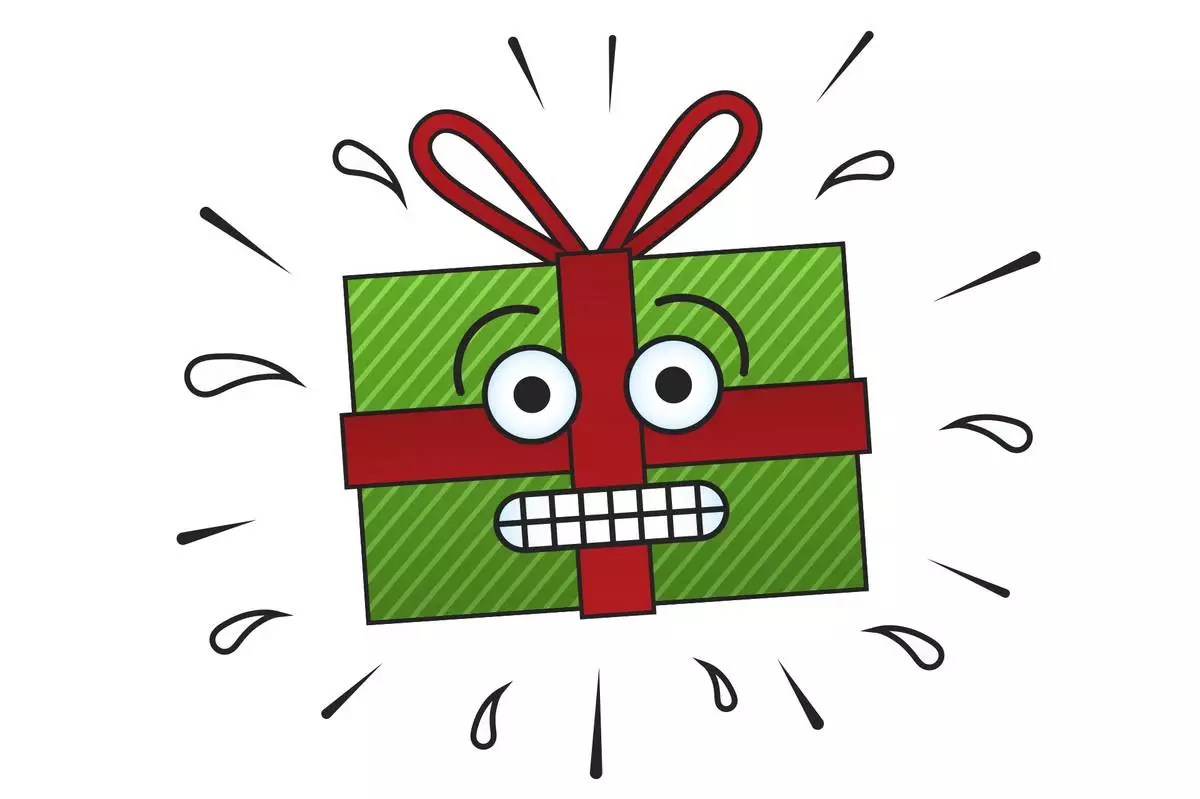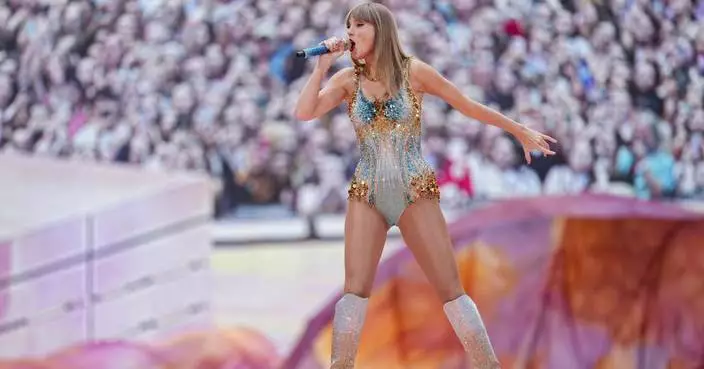The commencement of the holiday season often means the lengthening of to-do lists.
There are lights to hang, cards to mail, cookies to bake and, of course, gifts to buy. Gift exchanges, whether they’re among friends, family or co-workers, can be a fun way to get in the holiday spirit. But can also be another stressor during a busy time of year.
Secret Santa exchanges — where participants are assigned a gift recipient and tasked with finding them a perfect present within a price limit — sometimes mean that those in friend groups are paired with “frenemies,” someone inevitably draws themselves, or colleagues who are virtually strangers are matched up.
Those possible pitfalls inspired Peter Imburg to create Elfster, a free online Secret Santa organizer, after he saw the time and effort it took to coordinate the logistics of a gift exchange with his family over 20 years ago.
More top-down organization, he says, helps things run more smoothly.
Elfster, for instance, creates pairings, asks for wish lists, offers gift suggestions at different price points and sends reminders, among other features meant to make the organizational hurdles of a gift exchange less daunting.
“The organizer is like the hero. They make it all happen," Imburg said, adding that his site aims "to make it a lot easier for the organizer to do that with a minimal amount of effort.”
Cameron Rogers, a New Jersey-based social media content creator and podcast host on wellness and motherhood, understands the stress that gift exchanges can bring up.
“Having to give generic gifts to people I’m not necessarily close with is extremely difficult,” Rogers said. “I can pick a good gift for my husband or my kids or my mom, but for people who I don’t know the ins and outs of their lives, I think it’s hard to pick something that you know they’re actually going to enjoy.”
She recently shared a guide to Secret Santa gifts under $50 on her social media channels, emphasizing how challenging it can be to find something within a set price range that will be well-received.
Gifts with a specific purpose — kitchen gadgets, home items or winter gear — and gifts that have a personalized aspect like a monogram are good go-to options for anyone feeling lost after receiving their Secret Santa assignment, she said.
Imburg said the “gift gurus” at Elfster also have suggestions, especially for recipients who aren’t offering any clues as to what they’d like. In a similar vein as Rogers, the Elfster team offered ideas for some practical gifts, like water bottles, blankets and massage guns. Other no-nonsense home and kitchen items, like food storage containers, charging stations and more are featured on the site’s “Top Trending Gift Ideas for 2024” list.
Gift cards, although they are not particularly glamorous, are an essentially foolproof option, Rogers said, and they won’t leave your recipient wondering where they’ll find room on their shelf for another mug or book.
“I don’t want to give someone something solely to check a box,” Rogers said. “I want them to enjoy it, instead of being like, ‘What do I do with this now?’”
Some gift-givers find that Secret Santa (and its many counterparts like White Elephant and Yankee Swap) actually cuts down on stress and spending, as it's often done in place of giving individual presents to each member of a group.
Nicole Troiano of Cranston, Rhode Island, finds them to be a fun way to handle holidays with large groups — even if co-workers may need to ask around to get specifics on their assigned person.
“It’s fun to do it that way and think about something that would be good for that person,” she said. “And then, when they open it, they’re like, ‘Oh my God!’”
By the weekend after Thanksgiving, Troiano had already purchased and wrapped her gift for the exchange she’s taking part in this year. After her swap, a lucky participant will be the new owner of a cutting board, two bottles of wine wearing bottle-size ugly sweaters, and gourmet chocolates.

FILE - Presents appear at the War Childhood Museum in Sarajevo, Bosnia on Dec. 17, 2022. (AP Photo/Armin Durgut, File)

FILE - A shopper carries a Christmas-themed bag in London on Dec. 2, 2020. (AP Photo/Alberto Pezzali, File)

(AP Illustration/Peter Hamlin)
WASHINGTON (AP) — The lead-up to the 2024 election was all about cat owners. But in the end, the dogs had their day.
President-elect Donald Trump won slightly more than half of voters who own either cats or dogs, with a big assist from dog owners, according to AP VoteCast, a survey of more than 120,000 voters. Dog owners were much more likely to support the Republican over Democratic Vice President Kamala Harris. Cat owners were split between the two candidates.
About two-thirds of voters said they own a dog or cat, but pet owners don't usually get much attention from politicians. This year, however, past comments by Trump's running mate, Ohio Sen. JD Vance, about “childless cat ladies” briefly became a campaign issue — and Taylor Swift signed her Instagram endorsement of Harris in September as “Taylor Swift Childless Cat Lady.”
Harris did end up decisively winning support from women who owned a cat but not a dog. Still, those voters were a relatively small slice of the electorate, and pet owners as a whole did not seem to hold Vance's remarks against the GOP ticket.
Childless or not, women who only owned a cat were more likely to support Harris than were dog owners, or voters who had a cat and a dog. About 6 in 10 women who owned a cat but not a dog supported Harris, according to AP VoteCast. She did similarly well among women who did not own either kind of pet.
Her success with women who were cat owners didn't translate to men. Trump narrowly won the backing of men who only owned cats; slightly more than half of these voters supported him.
It’s impossible to know how much Vance’s comments played into Harris’ success with women who only had cats, but most of those voters had a “very” or “somewhat” unfavorable opinion of Vance. They were more likely to dislike than women who only own dogs or women who have cats and dogs. They were also more likely than female voters overall to have a negative view of Trump and the Republican Party.
A simple explanation for the divide is that women who were cat owners were never very inclined to vote for Trump, even before Vance's comments resurfaced. According to AP VoteCast, only about 4 in 10 female voters who only owned a cat were Republicans.
If anything, the result of the 2024 election suggests that Democrats may have some work to do with dog owners. Voters who owned a dog, including those who owned a cat as well, were more likely to support Trump, and they made up a bigger share of the electorate.
Cat owners who didn't also have a dog made up only about 15% of voters. About 2 in 10 voters, by contrast, owned both kinds of pets, and about 3 in 10 only had a dog, which meant that dog owners were a much more influential voting bloc. Trump won about 6 in 10 men voters who owned a dog but no cat, and about half of female voters in this group.
While Trump’s campaign did not make the same appeals to dog owners that Harris’ campaign did with cat owners, Trump did falsely claim that immigrants in Ohio were stealing and eating dogs and cats. But, as with the Vance remarks, there is no evidence that Trump’s statements ultimately influenced pet owners’ decisions. In fact, party loyalty was likely a major factor — about 6 in 10 men who only own dogs identified as Republicans, as did about half of women who are dog owners.
So Democrats looking to make inroads with dog lovers may not have an easy fix ahead. But it's also true that neither Trump nor Harris own pets, which meant no dogs accompanied the presidential candidates on the campaign. It's possible that future campaigns could benefit from a little more bark.
__
AP VoteCast is a survey of the American electorate conducted by NORC at the University of Chicago for Fox News, PBS NewsHour, The Wall Street Journal and The Associated Press. The survey of more than 120,000 voters was conducted for eight days, concluding as polls closed. Interviews were conducted in English and Spanish. The survey combines a random sample of registered voters drawn from state voter files; self-identified registered voters using NORC’s probability based AmeriSpeak panel, which is designed to be representative of the U.S. population; and self-identified registered voters selected from nonprobability online panels. The margin of sampling error for voters overall is estimated to be plus or minus 0.4 percentage points. Find more details about APVoteCast’s methodology at https://www.ap.org/elections/our-role/ap-votecast/

FILE - A sign directs the way to a polling place at Marina Park Community Center Nov. 5, 2024, in Newport Beach, Calif. (AP Photo/Ashley Landis, File)

FILE- President Bush, right, and first lady Barbara Bush walking with their dog Millie across the South Lawn as they return to the White House, Aug. 24, 1992. (AP Photo/Scott Applewhite, File)

FILE - Presidential pet Bo climbing the stairs of Air Force One at Andrews Air Force Base, Md. for a flight to Chicago with President Barack Obama, Aug. 4, 2010. (AP Photo/Cliff Owen, File)

FILE - President Bill Clinton's cat Socks peers over the podium in the White House briefing room in Washington on March 19, 1994. (AP Photo/Marcy Nighswander, File)
















